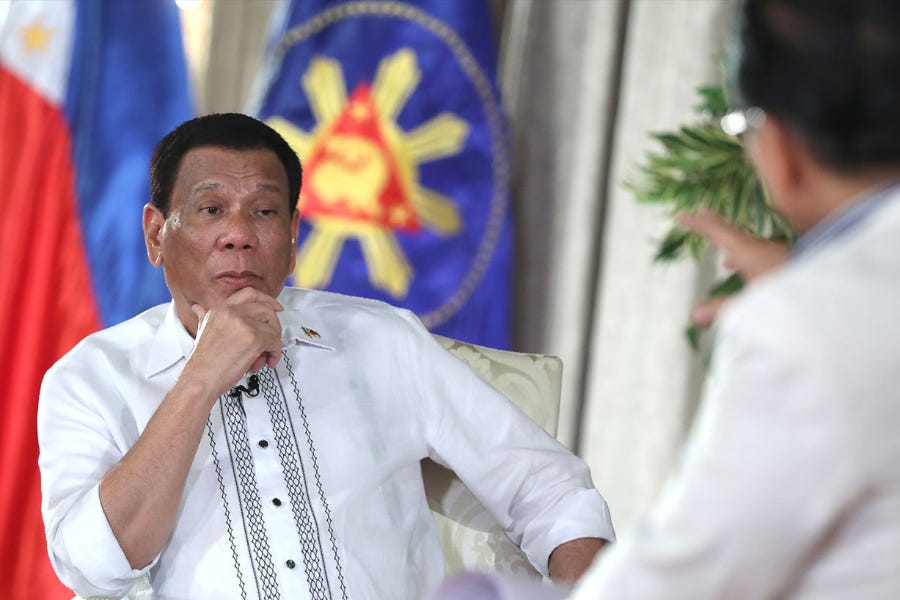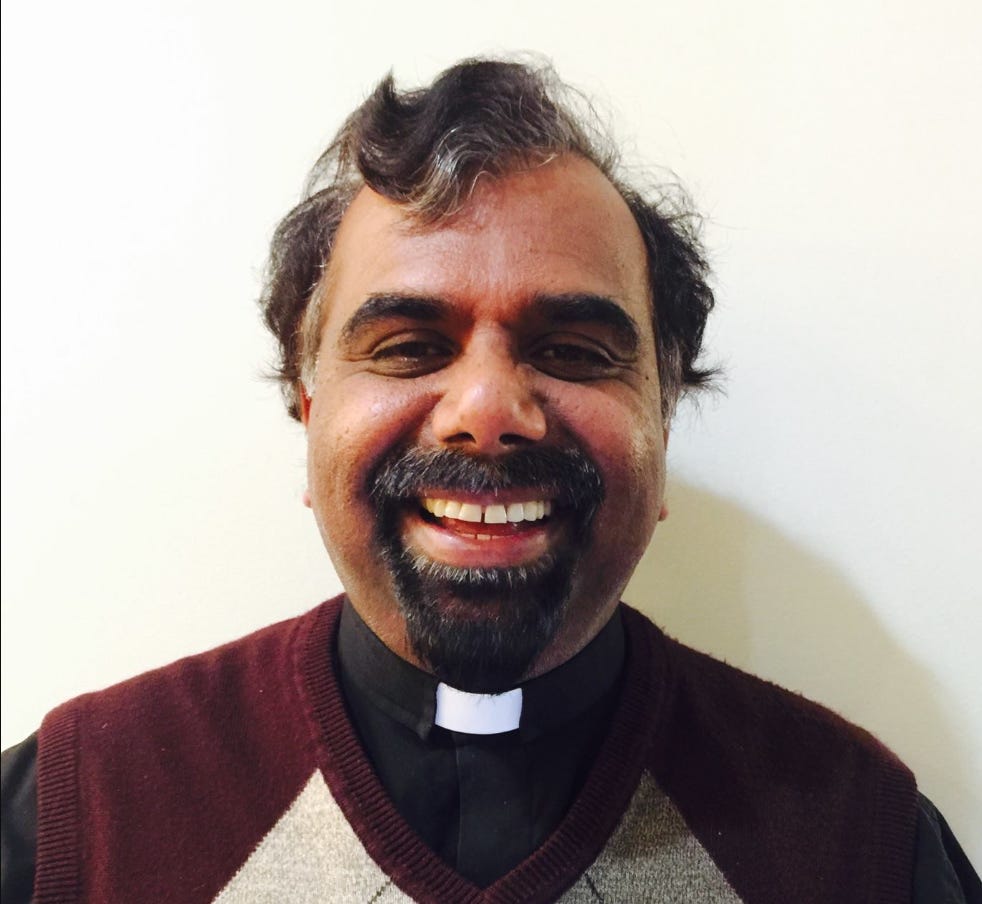After a statement on blessing same-sex couples was approved by Pope Francis and published Monday by the Vatican’s Congregation for the Doctrine of the Faith, the pope’s leadership in the Church has faced defiance and criticism — not from the voices most often critical of the pontiff, but from bishops, clerics, and theologians who argue that ecclesial approaches to homosexuality are harmful, and according to some, should be ignored or resisted.
Amid that criticism, few of the pope’s most frequent defenders among the U.S. bishops have weighed in to back the CDF, and it is not clear that they plan to do so. Their engagement, or absence from engagement, in a burgeoning conversation surrounding a document greenlit by the pope, marks for some of them a shift from business as usual.
The CDF statement came as an answer to a question, or dubium, that had been posed to it— whether the Church “has the power” to bless stable sexual relationships of same-sex couples. The CDF answered in the negative, explaining that “it is not licit to impart a blessing on relationships, or partnerships, even stable, that involve sexual activity outside of marriage (i.e., outside the indissoluble union of a man and a woman open in itself to the transmission of life), as is the case of the unions between persons of the same sex.”
“The presence in such relationships of positive elements, which are in themselves to be valued and appreciated, cannot justify these relationships and render them legitimate objects of an ecclesial blessing, since the positive elements exist within the context of a union not ordered to the Creator’s plan,” the CDF added.
“Furthermore, since blessings on persons are in relationship with the sacraments, the blessing of homosexual unions cannot be considered licit. This is because they would constitute a certain imitation or analogue of the nuptial blessing invoked on the man and woman united in the sacrament of Matrimony, while in fact ‘there are absolutely no grounds for considering homosexual unions to be in any way similar or even remotely analogous to God’s plan for marriage and family,’” the Vatican concluded, quoting from the 2015 exhortation of Pope Francis, Amoris Laetitia.
The statement was a response to proposals from the Church in Germany to normalize liturgical blessings of same-sex couples, Vatican officials told The Pillar. It came amid reports that such blessings have become common in several German dioceses.
In Germany, the CDF statement provoked a sharp response. Leaders, including bishops, of an ongoing Church synod in Germany said they would take the document under consideration, but emphasized it was not the last word on the subject, and that Church teaching on the subject might change. Priests, deacons, and lay pastoral leaders in both Germany and Austria said they would ignore the order, and continue to facilitate liturgical blessings of Catholics in same-sex civil marriages.
One prominent German priest framed the CDF’s document as an assertion of sheer power, while stating that many priests, himself included, would disregard it.
A Belgian bishop said Friday the CDF’s statement had come from an “ideological backroom,” and that he felt “ashamed of my Church,” adding that “‘sin’ is one of the most difficult theological and moral categories to define,” and an inappropriate way to characterize same-sex civil marriages.
“Intellectually, this does not even reach the level of high school,” Bishop Johan Bonny of Antwerp said of the CDF’s statement.
In the U.S., both secular and ecclesial figures ordinarily laudatory of the pope have distanced themselves from the CDF’s statement.
Prominent LGBT-rights advocate Fr. James Martin, who has said frequently his ministry is supported by Pope Francis, has made almost no statements reflecting his own opinion on the text, but has spent much of the week highlighting on social media the critical responses of bishops, and suggesting that LGBT Catholics have written to him in despair and depression over the Vatican statement.
A spokesperson for President Joe Biden, who has often taken pains to identify the president as a Catholic close to the pope, made a point Monday to emphasize Biden’s support for same-sex marriage. Groups calling for changes to Catholic doctrine on homosexuality have lambasted the statement and the pope, while some journalists have suggested that Pope Francis might not have really had time to review the statement critically, and others called the pope a hypocrite.
Among U.S. bishops, it has beenCardinal Sean O’Malley of Boston who has spoken most directly in support of the pope’s direction to the CDF.
“The church has a very clear teaching about marriage that needs to be proclaimed,” O’Malley, a member of the pope’s consultative cabinet, said Thursday.
“The Holy Father tries to be very sensitive and pastoral in his outreach to people and to show his concern about individuals and, at the same time, his commitment to fidelity to what the church's teaching is about the sacrament of marriage,” he added.
O’Malley’s statement notwithstanding, there is, to put it mildly, upheaval in many corners over an explanation of Catholic sacramental and moral theology, which was published by the CDF after approval from Pope Francis.
Backlash against statements or decisions of the pontiff is nothing new; Pope Francis’ eight years in office have proven polarizing. But ordinarily, when the pope is criticized, a group of U.S. bishops intervenes to defend the pope, and emphasizes a call for loyalty to him.
Most prominent among those bishops is Cardinal Blase Cupich, long said to be close to Pope Francis, and long an ardent supporter of the pope’s leadership.
In November, Cardinal Cupich took his brother bishops to task over some of their responses to the McCarrick scandal, telling them at a virtual meeting “we have to make sure that we never again have a situation where anyone from our conference is taking sides in this [against] the Holy Father, or challenging him.”
In autumn 2018, Cupich opposed a proposal at the USCCB to urge the Vatican to hasten its release of the McCarrick report, suggesting that any such request would be disloyal and distrusting of Pope Francis.
The cardinal has at several other times made it a point to defend Francis when he has faced criticism, and to correct the pope’s detractors.
But as backlash against the CDF statement has mounted, Cupich has said it was “understandable” many found the statement a “disappointment.” The cardinal offered no defense or explanation of the pope’s policy on the question.
Another bishop who has frequently defended Pope Francis amid controversy, Vatican official Cardinal Kevin Farrell, offered a vague few paragraphs when asked this week about the CDF statement. The cardinal seemed to want to distance himself from the statement, and in so doing, seemed to lose at least some listeners in a pile of distinctions and qualifiers which did not seem entirely to elucidate his view on the matter.
Cardinal Joseph Tobin of Newark, an American bishop close to Pope Francis, has not yet commented on the statement. Nor has Bishop Robert McElroy, who has in the past offered sharp rebukes to brother bishops over his understanding of the pope’s magisterium.
Archbishop John Wester, another American bishop who is said to be close to the pope, was asked by journalists Wednesday if he supported the CDF’s statement.
“It’s too complicated a point to respond to that, I’m afraid. The letter is multifaceted,” Wester said.
The archbishop did not elaborate on the letter’s facets.
In fact, the CDF’s statement points to the Church’s desire to better incorporate Catholics who identify as LGBT and say they feel alienated. It recognizes the “positive elements” of same-sex relationships and calls for those elements to be appreciated. It urges “respect and sensitivity” and accompaniment in the Christian life. There is a need for real and sustained conversation about how better to achieve those things. It can not be easy to identify as LGBT and Catholic, and there is much more for the Church to discuss about that, including a discussion of the meaning on the Church’s vision of sexuality for all people. But few reactions have centered on how to uphold and promote the Church’s teaching while getting better at evangelization and pastoral care amid new social realities.
For all the controversy over the CDF statement, it may in fact be Cardinal Cupich who best summarized the text. It taught, he said “nothing new.” For Germany’s bishops, that seems to be the problem. But for others it seems, the pope’s approach is just, as Cupich put it, understandably disappointing.
In 2020, when Pope Francis reaffirmed his commitment to clerical celibacy, some theologians who had been among the pope’s biggest supporters began to criticize him, suggesting the pope was not really the progressive ally they had hoped he would be. Now, with Pope Francis affirming long-held tenets of Catholic theology, some bishops seem to be cooling on the pontiff as well, and in Europe, some are openly rebelling.
But Pope Francis faces the challenge, especially in Germany, of trying to stave off a schism while upholding the faith. As he works at that, he will likely need all the support, trust, loyalty, and help that can be mustered, especially from those who have long called for those things from other bishops.
It is not clear, however, that he will have them. At least not from all the usual suspects.
Ed. note: This analysis was updated after publication to include the remarks of Cardinal O’Malley.



